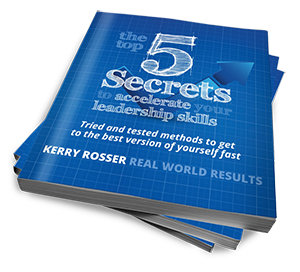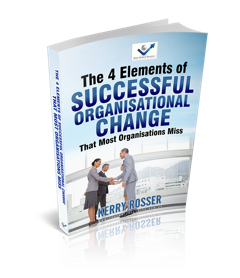I have recently been involved with a number of organisations that are experiencing a great deal of change, when talking to the employees about their experiences of change in their life so far, all of them willingly share words of wisdom about change, for example:
“Roll with the punches”
“It’s not going to go away”
“Suck it up Princess”
“Let’s just get on with it”
“Change is an opportunity”
“Build a Bridge…”
So why is it that although we know at a cognitive level (thinking level) that change is necessary and an ongoing part of life, why is it that it’s so hard…..? It’s like we all say, “here take my advice … I’m not using it”.
As human beings we are hard-wired to stay safe, and often any threat to that perceived safely initiates a survival reaction within our core, within the subconscious, in our gut.
What is there to worry about?
Well, its the loss or perceived loss of
- Status within a team, organisation, family or friends
- Sense of competence with the current processes
- The sense of certainty and routine (where we don’t have to think about every small step in a process)
All these perceptions tend to trigger a survival response deep within us, at a very subconscious level. When we see people around us reacting to, and resisting change, it is worthwhile considering what might be the triggers for them.
Our ability to relate at a conscious level as well as a logical cognitive level with other people seems to influence how we support and manage change. So how do we create access points in order for us to explore our subconscious and deeply seated response patterns? Part of the answer might lie in the field of Emotional Intelligence, and a part might lie with the Immunity to Change mapping.
The field of emotional intelligence has four broad elements – self awareness, self regulation, social awareness and relationship management, in many ways these elements build upon each other. When we consciously grow and develop our own emotional intelligence and attempt to understand our own reactions and responses to change (self awareness – self regulation) it challenges us and what we know and can connect with – deep within ourselves.
I often hear comments like ‘it’s just the way I am’ – ‘I can’t help it, I am a worrier’, ‘change is never good’ We are often expressing our cognitive thinking rather than the subconscious thinking and automatic responses (survival responses).
In Daniel Goleman’s book – The Brain and Emotional Intelligence – he shares:
That most of us will have heard that we are born with a huge amount of brain cells and then we lose them steadily until we die. The new understanding is what’s called ‘neurogenesis’. Every day the brain generates 10,000 stem cells that split into two. One becomes the daughter line that continues making stem cells, and the other migrates to wherever it’s needed in the brain and becomes that kind of cell. Very often that destination is where the cell is needed for new learning. If we are learning a new golf swing, that circuitry will attract connections and neurons. If we are changing a habit – say trying to get better at listening – then that circuitry will grow accordingly.
On the other hand, when we try to overcome a bad habit, we’re up against the thickness
of circuitry for something we have practiced and repeated thousands of times.
When we are presented with new ways of doing things, new ways of thinking, a change in routine, a perceived threat to our survival, we have the neurons and brain cells available to us as described above. However, I wonder if this is why we often feel so tired – taking in new information, building new neural pathways creating new habits and routines.
The Immunity to Change experience enables us to surface some of our fears and worries and what assumptions we hold that support those fears and worries. A recent experience with a group of Managers working through the Immunity to Change process – identified their fears and worries about changing behaviours and thinking patterns and then declared the assumptions that hold them as illogical and ‘silly’ when they had allowed them to surface.
This experience illustrated to me the intense power that our subconscious and deeply held assumptions have upon us, and its only when we allow these assumptions to surface that we can ponder, experiment and reconsider these assumptions and then make some choices about the validity of remaining with them.


 Subscribe to our mailing list to unlock the download link for our free e-book The 4 Elements of Successful Organisational Change That Most Organisations Miss.
Subscribe to our mailing list to unlock the download link for our free e-book The 4 Elements of Successful Organisational Change That Most Organisations Miss.